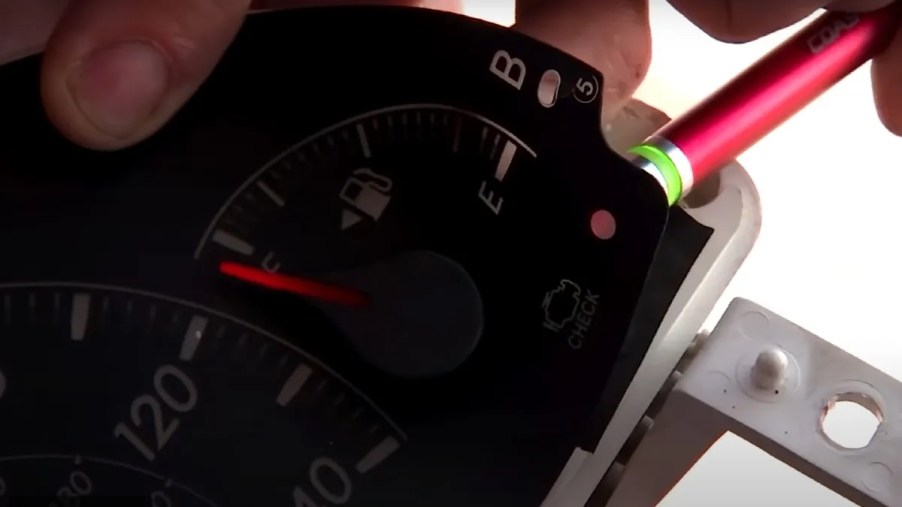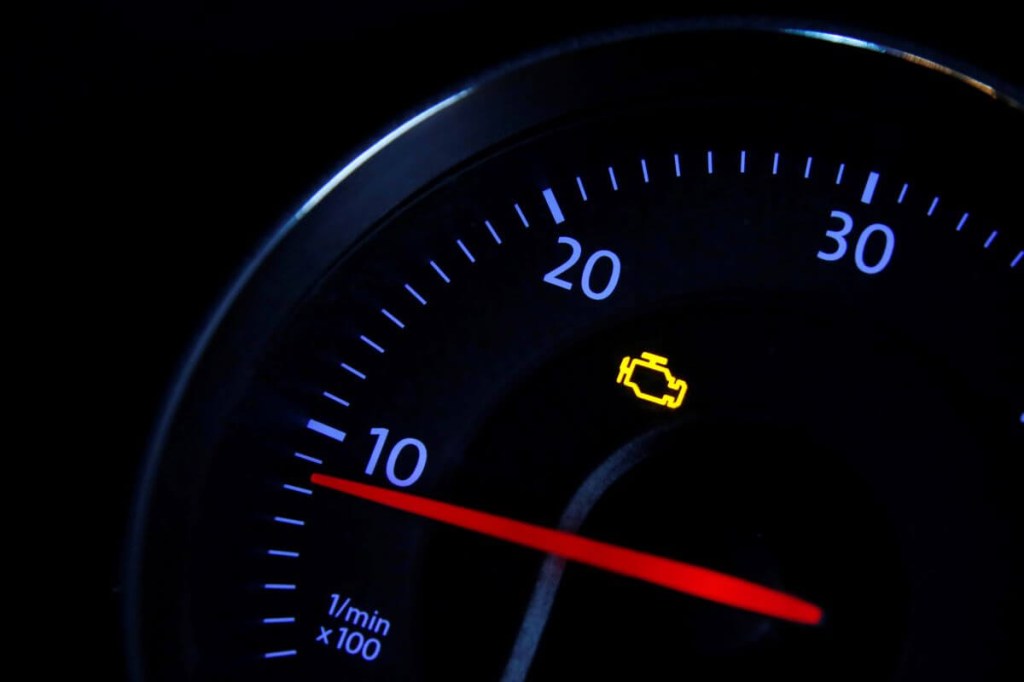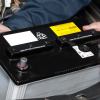
Don’t Walk Away From a Used Car With Tape Stuck to Its Dashboard, Run!
So you were in the midst of a car buying adventure, browsing used cars online and you spotted something weird: A bit of tape stuck to an instrument cluster in a dashboard. This tape is likely masking a “check engine” light. This light signals something is wrong with the car–and that the seller is less-than-honest. I personally would avoid this deal at all costs.
Should you buy a used car with a check engine light?
Buying a used car with a check engine light on isn’t the world’s worst idea–if the seller is honest and you do your research. You can investigate the cause of said light, get a quote on repairing it before you even buy the car, and you might end up with a bargain on a vehicle that scares others off.

If a used vehicle seller comes clean that their car or truck has a check engine light, you can factor this into your decision whether to buy or not. The two of you could drive the vehicle to the nearest auto parts store and ask them to double-check the cause of the check engine light. They’ll connect an OBD II scanner to the diagnostic port under the dashboard and read you the vehicle’s “codes.”
You can then Google the meaning of these codes. The Consumer Law Group adds that you can also call some local repair shops and get an estimate for fixing the car. This estimate will be vital as you and the owner negotiate a fair price.
If the check engine light is for a minor malfunction, you can still take the vehicle for a test drive. You will obviously want to test the suspension, brakes, and other components as you regularly would.
Beware of dishonest car sellers

A check engine light in a used car you’re considering buying is not a complete dealbreaker. But if the vehicle’s owner attempts to conceal it from you, that’s a major red flag. They might do this by lying about the meaning of the dashboard light. Or they might even stick black tape over the dashboard’s “check engine” light and hope you don’t notice.
Sure, you could question the owner about the light. Perhaps you could even have it read at a local parts store, get an estimate from a nearby shop, and negotiate a new price for the used vehicle. But if the owner lies to you about this light, it is impossible to trust anything else they say.
If the owner says they had the vehicle serviced recently, you don’t know if this is actually true. If the seller claims the car or truck has no other issues or malfunctions, they could be lying through their teeth. It is probably better to avoid people like this altogether.
A check engine light can mask other problems
Sometimes you have a shop read your check engine light and find it’s a benign issue. One example is the infamous and finicky “evaporative emission control system” (EVAP) connected to your gas tank. In this case, it can be tempting to ignore the light and keep driving. But then, if a dangerous problem with your engine does arise, you won’t know about it.
A vehicle seller who masks a check engine light with tape is running exactly this risk. Moreover, they are not the kind of vehicle owner who attends to other minor problems. So this car or truck may have already shown signs of advanced brake or suspension wear. Perhaps there’s a problem with the HVAC system you won’t find out about until the colder months. All-in-all, this used vehicle is one you want to run away from.
Next, find out whether open recalls change a car’s trade-in value or learn more about check engine light causes in the video below:






